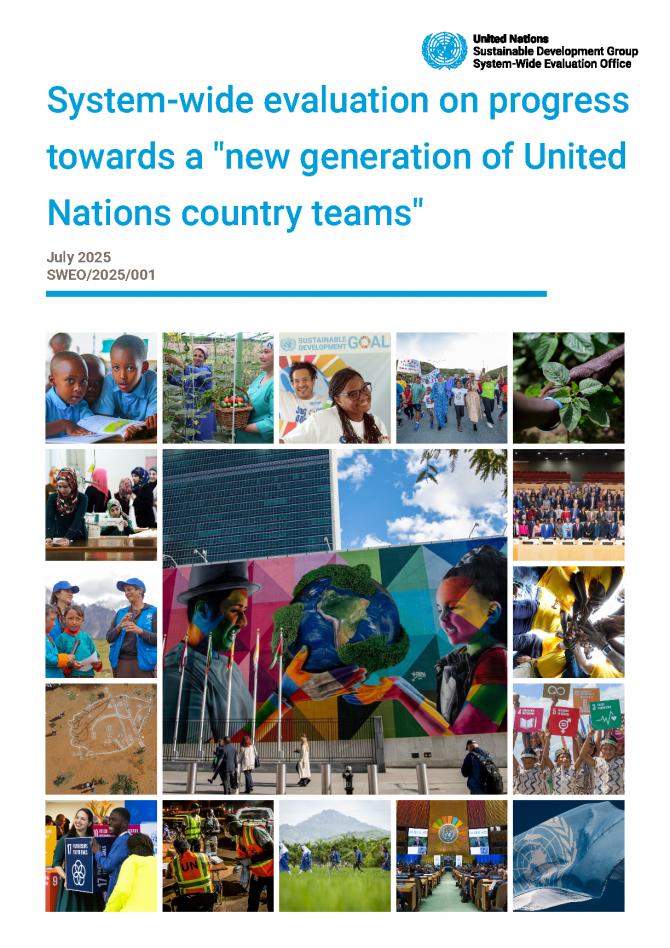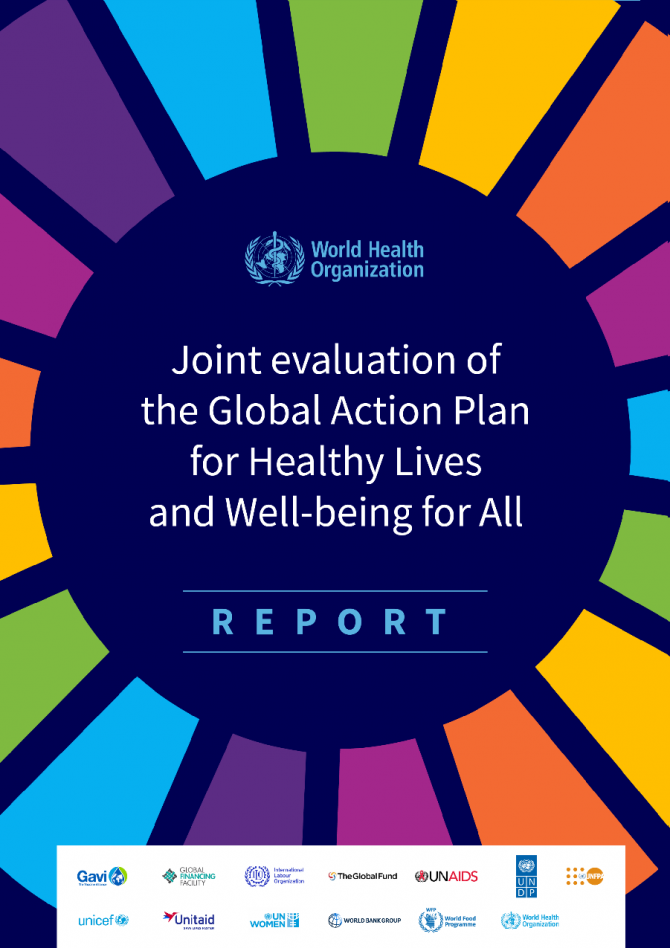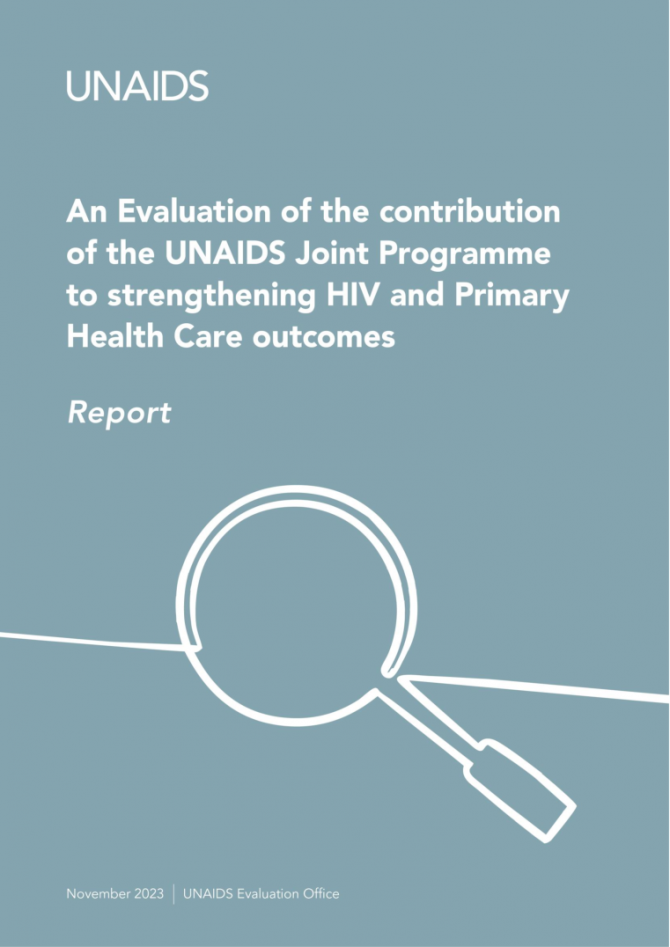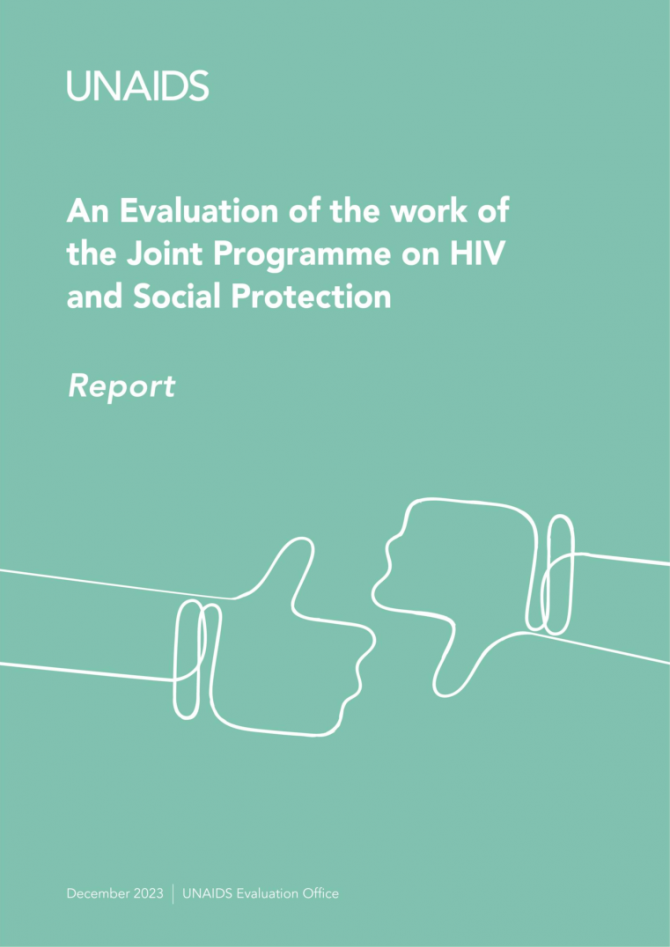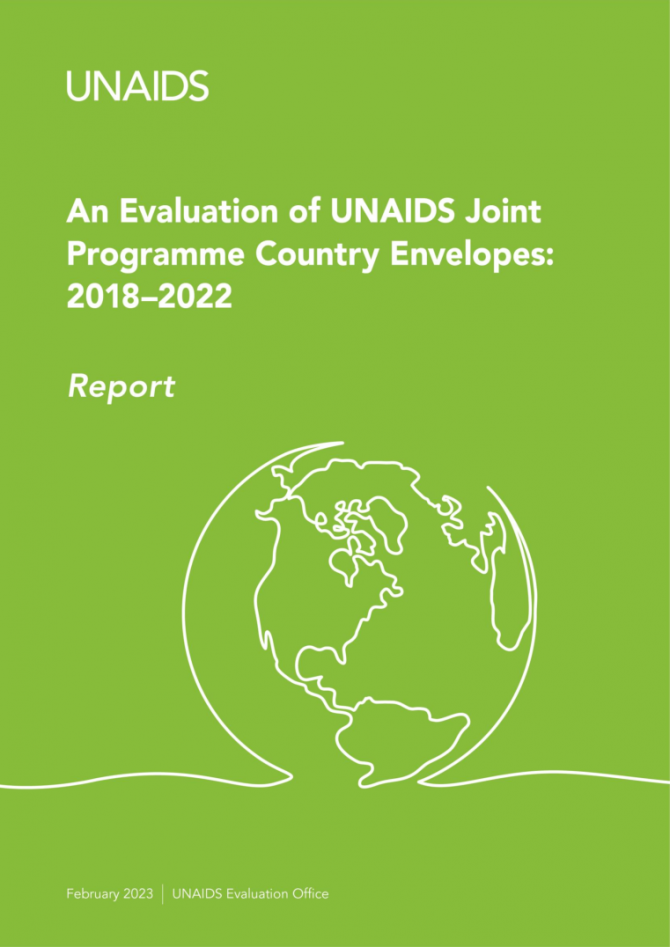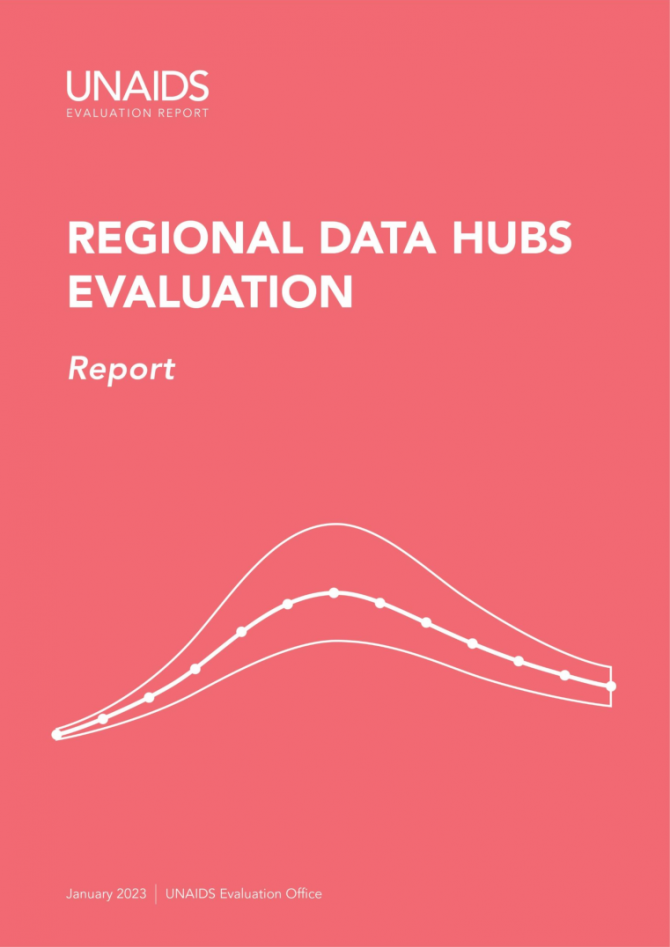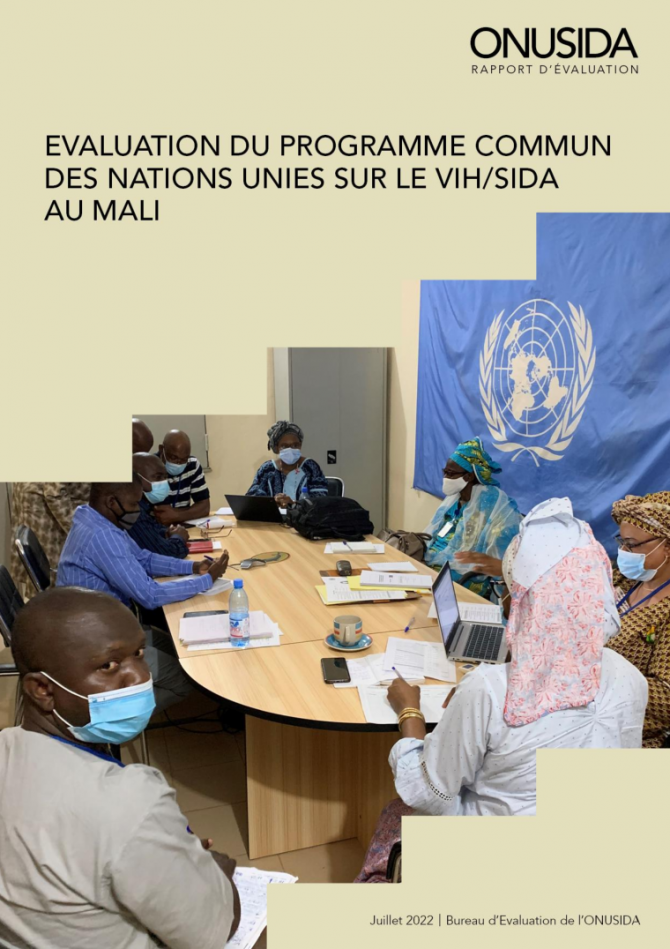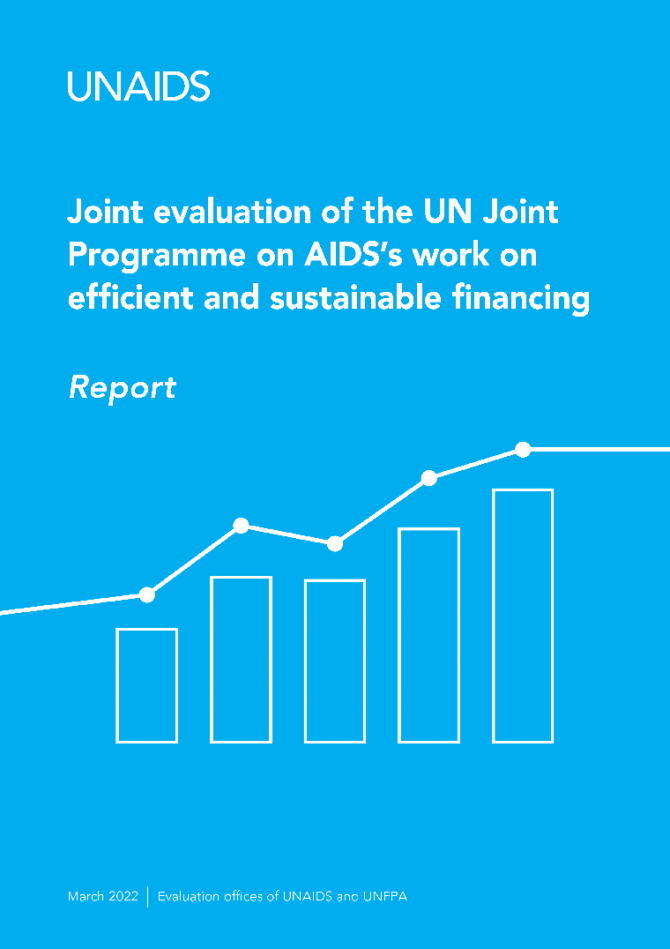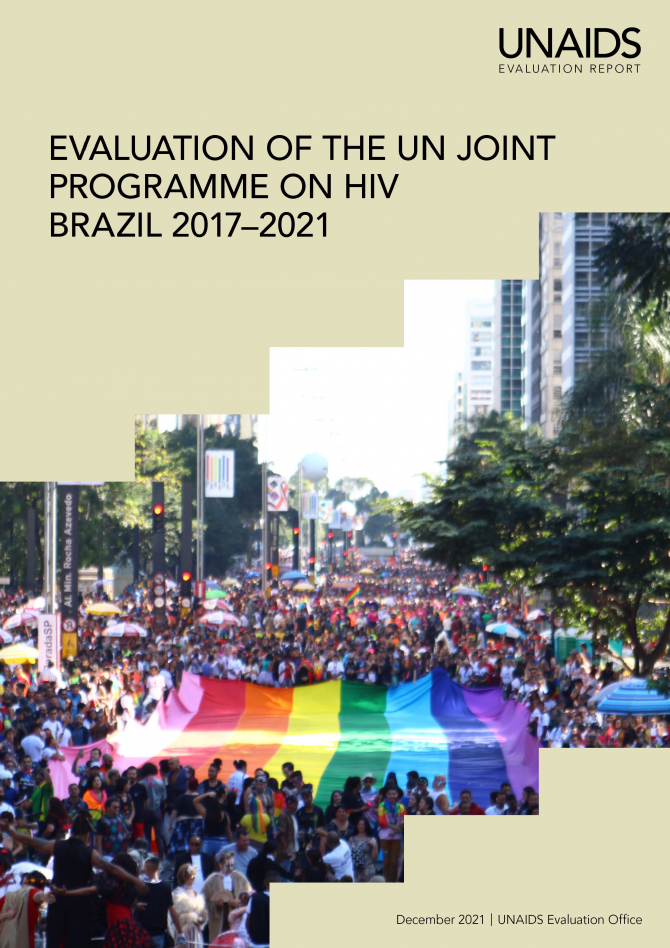Documents
System-wide evaluation on progress towards a "new generation of United Nations country teams"
12 September 2025
This evaluation examined progress towards a “new generation of United Nations country teams” mandated by A/ RES/72/279. It assessed the alignment/derivation of UNSDG entity programming from Cooperation Frameworks, and the (re)configuration of UNCTs. It covered the period 2019-2025, all UNSDG entities and the Resident Coordinator system (including the Development Coordination Office) at country, regional and global levels. Read summary report.
Documents
Review of UNAIDS Joint Programme evaluations and assessments (2020-2024)
21 January 2025
The purpose of the review of Joint Programme evaluations, assessments reports and their management responses was to consolidate and analyze findings from previous Joint Programme evaluative evidence published during the period 2020-2024 against the UNAIDS Joint Programme mandate/six programmatic objectives and Identify information gaps in the reports reviewed.
Documents
Joint Evaluation of the Global Action Plan for Healthy Lives and Well-being for All (SDG 3 GAP)
16 December 2024
The main purpose of the joint evaluation of the Global Action Plan for Healthy Lives and Well-being for All (SDG 3 GAP) was to assess how effectively the plan has facilitated collaboration among the 13 signatory agencies to accelerate country progress on health related Sustainable Development Goal (SDG) targets between September 2019 and June 2024. The evaluation focuses on how well these agencies have worked together to engage countries, align policies and strategies, and plan and implement joint actions with the goal of enhancing shared accountability and achieving health-related SDGs across 67 countries. It was designed to inform discussions about the future of the GAP among the signatory agencies. Related documents: Evaluation Brief | Executive Summary | Annexes
Documents
Evaluation of the contribution of the UNAIDS Joint Programme to strengthening HIV and Primary Health Care outcomes
06 May 2024
The main objective was to conduct a forward-looking process evaluation that identified opportunities for the UNAIDS Joint Programme to strengthen HIV and primary health care (PHC) integration and linkages, at the same time as assessing, as far as possible, what the Joint Programme has achieved. The evaluation covers the period January 2020-August 2023. The geographical scope included global, regional and country levels (the latter primarily through four case study countries). The technical scope considers the PHC approach with three main components: primary care and essential public health functions as a core of integrated health services; multisectoral policy and action; and empowered people and communities. Related documents: Briefing | Presentation | Country case studies: Angola | Botswana | Indonesia | Pakistan | Management response | Management response, 2024
Documents
Evaluation of the UNAIDS Joint Programme on HIV and Social Protection
04 May 2024
The assessment has covered activities related to HIV-sensitive social protection conducted by the UNAIDS Secretariat and Cosponsors (referred to as the Joint Programme) from 2018 to December 2022, with a focus on nine countries selected for their broadness and diversity of the UNAIDS geographic scope. This document is the result of this evaluation process. Related documents: Presentation | Management response | Management response, 2024
Documents
Evaluation of UNAIDS Joint Programme Country Envelopes: 2018-2022 - Report
15 June 2023
The evaluation assessed the effectiveness of the Country Envelopes as a mechanism to allocate and disburse funds for the Joint Programme at the country level. It documented and analyzed results and explored alternative approaches for fund allocation. The evaluation revealed that while Country Envelope funding is crucial, there is room for improvement in decision-making and fund monitoring. Regular funding has played a significant role in keeping HIV a priority for the UN and promoting collaboration. However, it is necessary to prioritize and concentrate efforts on Global AIDS Strategy targets, while also striving for maximum efficiency, inclusion, and people-centred results at the country level. Related documents: Brief | Presentation (key findings and recommendations) | Country case studies: Andean countries | India | Iran | Zambia | Management response | Management response 2024
Documents
Regional Data Hubs evaluation
28 March 2023
The evaluation of the regional Data Hubs aimed to understand and document the history of the creation and implementation of the regional Data Hubs. According to the evaluation, UNAIDS has a crucial role in addressing information gaps in various regions, and the success of the regional Data Hub in the Asia-Pacific provides valuable insights on how UNAIDS can deliver on its mandate through data for impact. The recommendations provided by the evaluation will be valuable in guiding future investments and prioritization of tools to improve data for decision-making and knowledge management. Related documents: Presentation | Management response | Management response, 2024
Documents
Evaluation of the UN Joint Programme on AIDS in Mali
31 October 2022
The evaluation was carried out and managed in close collaboration with the UNAIDS Country Office in Mali and members of the UN Joint Team on AIDS. The evaluation confirmed the strong alignment of the Joint Programme's strategic directions with national priorities and overarching strategic frameworks. Progress has been made in coordination. However, more needs to be done regarding geographic and population targeting, and to fully communicate the contribution of the Joint Programme. The Joint Programme has implemented innovative and high-impact catalytic actions, but many activities do not yet have a sustainability strategy. Gender and human rights aspects are generally considered. Partnerships with civil society remain a priority to reduce vulnerabilities. The evaluation is expected to help optimize the support of the Joint Programme to the national HIV response.
Documents
Joint evaluation of the UN Joint Programme on AIDS’s work on efficient and sustainable financing
01 June 2022
Working closely with fellow UN agencies, UNAIDS and UNFPA Evaluation Offices have jointly managed an independent evaluation of the work of the UN Joint Programme on AIDS on efficient and sustainable financing. The evaluation combined a global consultation and document review with case studies in Côte d’Ivoire, Kazakhstan, the United Republic of Tanzania and Viet Nam. The evaluation found that the Joint Programme has made important contributions to improving allocative and technical efficiency of the AIDS response, which should continue to be a priority for the Joint Programme. The evaluation recommends improved coordination and integration of HIV financing into Universal Health Coverage and the health financing agenda more broadly. More is also needed to strengthen the capacity of civil society, community-based organisations and key populations to engage in the financing agenda.
Related resources: Appendices and country case studies | Executive Summary | PowerPoint presentation | Management response
Documents
Evaluation of the UN Joint Programme on HIV in Brazil
11 May 2022
The independent evaluation of the UN Joint Programme on HIV in Brazil assesses the role and contribution of UNAIDS Secretariat and Cosponsors to the AIDS response in the context of the 2017-2021 UN Development Assistance Framework in the country. The evaluation documents achievements, challenges and lessons learned by the Joint Programme. It was guided by three overarching questions: Is the Joint Programme on HIV in Brazil doing the right things? In the right way and? Achieving the right results? The findings, conclusions and recommendations of the evaluation are informing joint plans on HIV, with the aim of strengthening the contribution of the Joint Programme to the AIDS response - and beyond - as part of a new UN Sustainable Development Cooperation Framework in Brazil.

